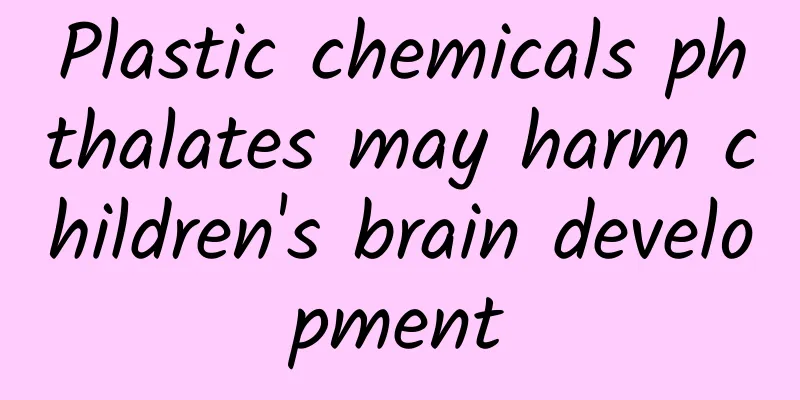Plastic chemicals phthalates may harm children's brain development

|
According to the latest news from the US Science Times on the 21st, a group of health professionals and scientists from the TENDR project published an article in the American Journal of Public Health calling for an immediate ban on the use of phthalates, a synthetic chemical in plastics, in consumer products because they can damage the brain and neural development of fetuses, infants and children. Phthalates are "ubiquitous chemicals" found in hundreds of consumer products, including food and personal care items, detergents, clothing, oils and adhesives, shampoos and hair sprays. The common synthetic chemicals make plastics more flexible and harder to break. Under current FDA regulations, phthalates must be listed on product labels unless they are part of a scent. However, studies have shown that phthalates as "fragrance" can sometimes make up as much as 20% of a product's ingredients. Phthalates have also been linked to asthma, childhood obesity, cardiovascular problems, reproductive problems, and cryptorchidism in male babies. The report states that by 2019, more than 30 studies from about 11 different countries around the world had examined prenatal exposure to different types of phthalates. Researchers found that hyperactivity, rebellion, aggression, emotional reactivity, etc. were strongly associated with phthalates during children's neurodevelopment. One study showed that children exposed to high levels of phthalates in the womb had IQs seven points lower than those with less exposure. Another showed that mothers with the highest levels of phthalates in their urine were three times more likely to have children diagnosed with ADHD. TENDR, a project targeting environmental neurodevelopmental risks, is a group of volunteer child advocates, scientists and health professionals who are dedicated to quantifying and reducing children's exposure to neurotoxic pollutants and chemicals. David Bellinger, professor of neurology at Boston Children's Hospital and a volunteer at TENDR, pointed out that when a baby's development is hindered and affected by synthetic chemicals in the womb, the damage is permanent and irreversible. "What we wanted to achieve was to nudge the public health community, including U.S. regulators, toward the goal of eliminating phthalates," said Stephanie Engel, lead author of the study. |
<<: Glaucoma, the silent thief of vision
Recommend
Are feet a "monitor" of blood sugar? If your feet show these 6 symptoms, it may indicate that your blood sugar is above the standard
The feet can be said to be a magnifying glass for...
Abdominal pain in the ninth month of pregnancy
Many couples want to have their own love crystall...
About Vaginal Tightening Surgery
Nowadays, many people choose to undergo vaginal t...
Adult female pulse rate per minute
The body's pulse waves can be recorded using ...
Diagram of sideways feeding posture
What is the correct posture for side-lying breast...
How to treat vaginal itching and leucorrhea that becomes like tofu dregs?
With the increase of life pressure, gynecological...
How can you make dumplings tender if the chives are old? What can you do with the dough for making dumplings?
Dumplings are one of the traditional Chinese deli...
How to do lactation consultant technique
Giving birth to a baby is a very happy thing for ...
How to enlarge breasts if you have small breasts?
For many girls, breasts are an important criterio...
About the effective way to treat cataracts! Is there any "special medicine"?
As people age, their eyes also age. Cataracts are...
What are the methods to prevent cervical erosion?
The incidence of cervical erosion is very high. T...
What should I do if my progesterone level is only over 7?
I believe many pregnant women don’t know what the...
Data Explains Why Weibo Tutors' Twitter Accounts Are Surpassed by Weibo Students
On the evening of October 18, 2016, Weibo's s...
How long will my period be delayed after taking birth control pills?
Birth control pills are a common method of contra...
How many diseases can a tube of erythromycin eye ointment, which costs only a few dollars, cure? Here comes the answer
Expert in this article: Li Xue, Peking Union Medi...









